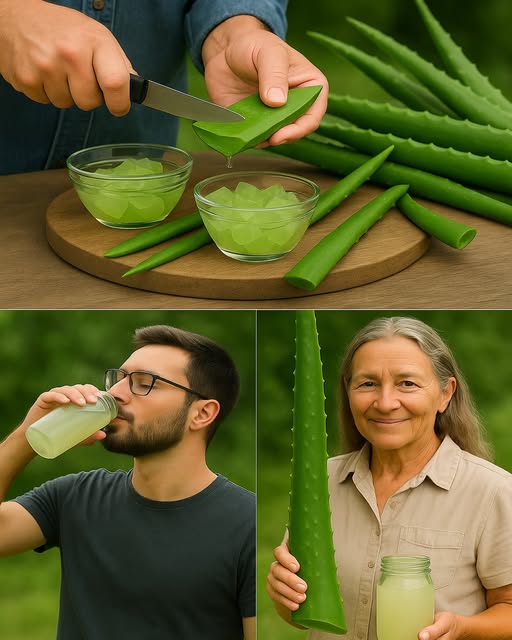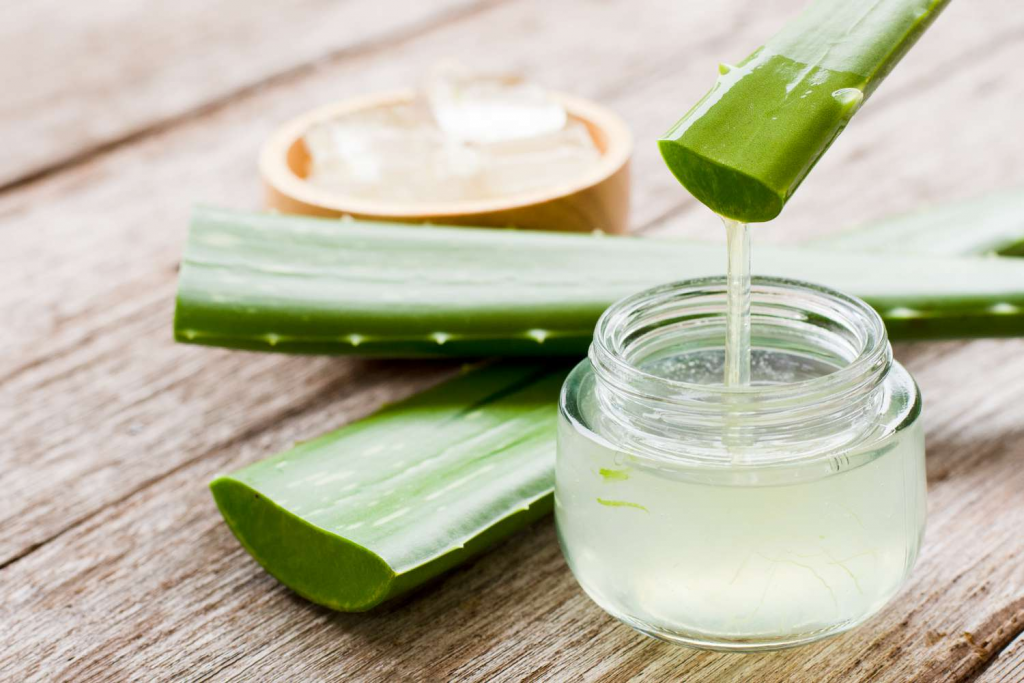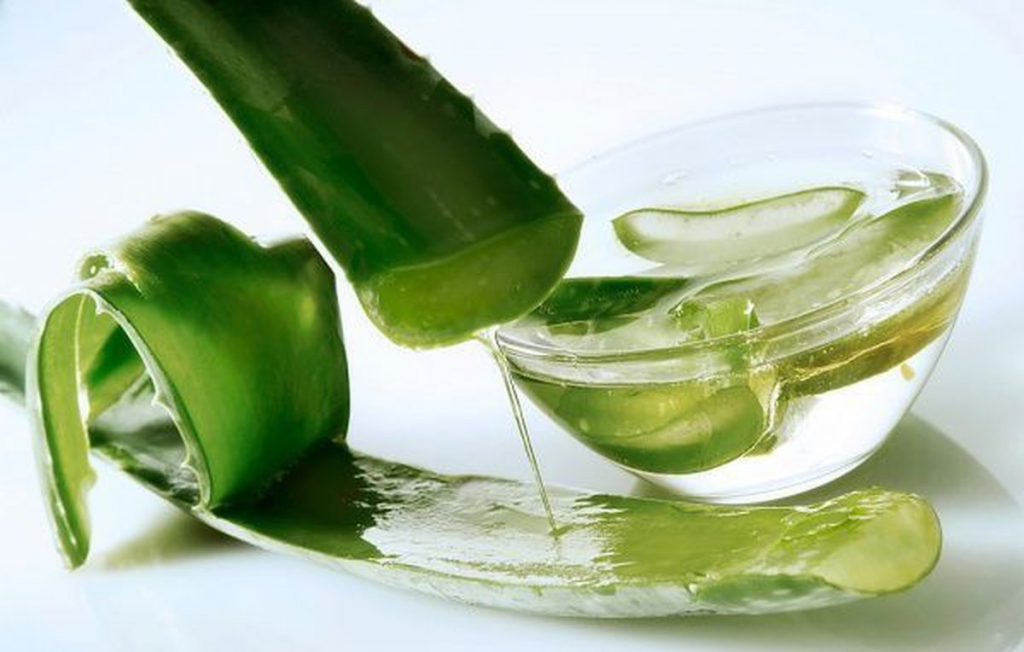What if the solution to more than a dozen common health and lifestyle problems was growing quietly in your backyard? Aloe vera, often called the “plant of immortality” by ancient civilizations, has been treasured for thousands of years for its incredible healing and nourishing properties. Today, millions of households keep this plant not just for its beauty but also for its practical benefits.
Recent surveys reveal that aloe vera is one of the top three most used natural remedies worldwide, with studies highlighting its potential to support skin health, digestion, and even immunity. From soothing sunburns to supporting oral hygiene, aloe vera offers an impressive range of uses that modern science continues to validate.
In this article, we’ll explore 17 powerful ways aloe vera can improve your health and everyday life. You’ll learn not only how to apply it but also why it works, with practical advice and real-life examples to help you get the most out of this green miracle.

The 17 Health and Lifestyle Problems Aloe Vera Can Solve
1. Soothing Sunburns
Aloe vera gel is famous for its cooling effect on sunburned skin. Its anti-inflammatory properties reduce redness, pain, and promote faster healing. Keep a fresh leaf in the fridge for instant relief.
2. Moisturizing Dry Skin
Unlike many store-bought creams, aloe vera penetrates the skin deeply without leaving a greasy residue. It hydrates naturally, making it ideal for daily skincare routines.
3. Healing Minor Cuts and Burns
The antibacterial properties of aloe vera make it effective in preventing infections. Apply directly to small wounds to speed up the recovery process.

4. Fighting Acne
Aloe contains salicylic acid and sulfur, both known for combating acne. Applying aloe gel daily can reduce inflammation, unclog pores, and calm irritated skin.
5. Reducing Wrinkles and Fine Lines
Rich in antioxidants like vitamin C and E, aloe vera helps fight free radicals that accelerate aging. Regular use may improve skin elasticity and reduce visible signs of aging.
6. Strengthening Hair and Reducing Dandruff
Aloe vera gel can be massaged into the scalp to soothe irritation, hydrate hair roots, and reduce dandruff. Many people use it as a natural conditioner.
7. Supporting Digestion
Aloe vera juice is known to help with occasional constipation and promote smoother digestion. It works by balancing stomach acidity and supporting gut health.
8. Boosting Immunity
The plant contains polysaccharides that may stimulate white blood cells, helping the body defend against infections. Drinking small amounts of aloe juice regularly can support immune resilience.
9. Reducing Inflammation in Joints
For those suffering from arthritis or joint stiffness, aloe vera may help when applied topically or taken as a juice, thanks to its anti-inflammatory compounds.

10. Balancing Blood Sugar Levels
Some studies suggest aloe vera may support healthy blood sugar regulation. While not a replacement for medical treatment, it can be a supportive natural remedy.
11. Enhancing Oral Health
Aloe vera can be used as a natural mouthwash to reduce plaque, fight gum inflammation, and freshen breath. It’s gentle yet effective compared to commercial products.
12. Supporting Weight Management
Aloe vera juice may aid metabolism and digestion, helping the body process nutrients more efficiently. Combined with a balanced diet, it may support weight control.
13. Improving Sleep Quality
The soothing properties of aloe can reduce stress and promote relaxation, which contributes to better sleep. Keeping an aloe plant in the bedroom may also improve air quality.
14. Detoxifying the Body
Aloe vera juice helps flush out toxins and supports liver health, which plays a crucial role in detoxification.
15. Alleviating Psoriasis and Eczema
The anti-inflammatory and moisturizing properties of aloe vera provide relief for itchy, dry, and irritated skin caused by these conditions.

16. Enhancing Wound Recovery After Surgery
Some patients use aloe vera under medical supervision to support post-surgical wound healing. Its compounds may accelerate tissue repair.
17. Boosting Everyday Energy and Hydration
Aloe vera juice contains vitamins, minerals, and amino acids that contribute to overall vitality. Drinking it in moderation can leave you feeling refreshed and energized.
Aloe Vera in Daily Life: Practical Applications
How to Extract Aloe Vera Gel
- Cut a mature leaf close to the base.
- Wash it thoroughly to remove dirt.
- Slice open the leaf and scoop out the clear gel with a spoon.
- Store in a clean container in the refrigerator for up to one week.
Ways to Use Aloe Vera at Home
- For Skin: Apply fresh gel directly as a moisturizer or mask.
- For Hair: Mix with coconut oil and use as a scalp treatment.
- For Digestion: Blend one tablespoon of aloe vera gel with water or juice.
- For Oral Health: Swish diluted aloe juice as a natural mouthwash.

Case Studies and Real-Life Experiences
- Linda, 42, from California: She replaced her expensive night cream with aloe vera gel. Within a month, she noticed her skin felt smoother and her fine lines softened.
- Raj, 55, from India: He began drinking diluted aloe vera juice for digestive issues. After three weeks, his bloating reduced, and he reported better overall energy.
- Sofia, 29, from Spain: She used aloe gel for her scalp dandruff problem. After consistent use, her itching disappeared, and her hair became shinier.
Quick Reference Table of Aloe Vera Benefits
| Problem | How Aloe Vera Helps | Method of Use |
|---|---|---|
| Sunburns | Reduces pain and redness | Apply gel directly |
| Acne | Fights bacteria, calms skin | Apply gel daily |
| Wrinkles | Antioxidants improve elasticity | Use as night mask |
| Hair/Dandruff | Hydrates scalp, reduces flakes | Massage into scalp |
| Digestion | Promotes gut balance | Drink diluted juice |
| Oral Health | Reduces plaque, freshens breath | Use as mouthwash |
Conclusion
Frequently Asked Questions
Can I drink aloe vera juice every day?
Yes, but in moderation. Start with small amounts and consult your doctor if you have medical conditions.
Is aloe vera safe for children?
Topical use is generally safe, but oral use should be guided by a healthcare professional.
Can aloe vera replace medication?
No. Aloe vera is a supportive natural remedy, not a substitute for professional medical treatment.
How can I store aloe vera gel?
Keep it in an airtight container in the fridge. For longer storage, freeze in ice cube trays.
Aloe vera is more than just a plant—it’s a natural solution to everyday problems. By incorporating it into your lifestyle, you can support healthier skin, better digestion, improved immunity, and more. Simple, affordable, and effective, this garden treasure deserves a place in every home.
Disclaimer: This article is for informational purposes only and does not replace professional medical advice. Always consult a qualified healthcare provider before making changes to your health regimen.




